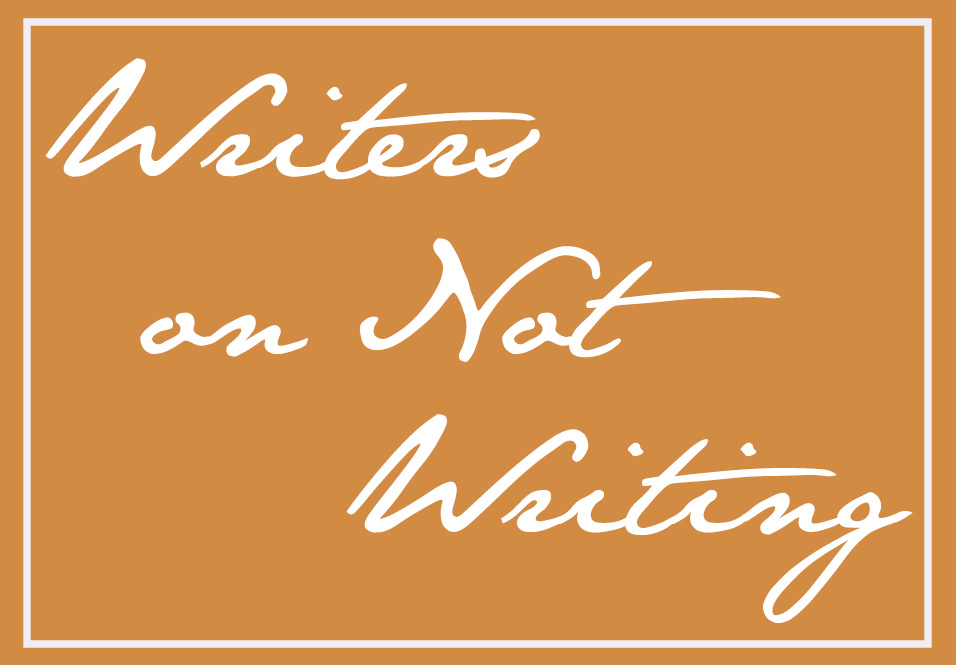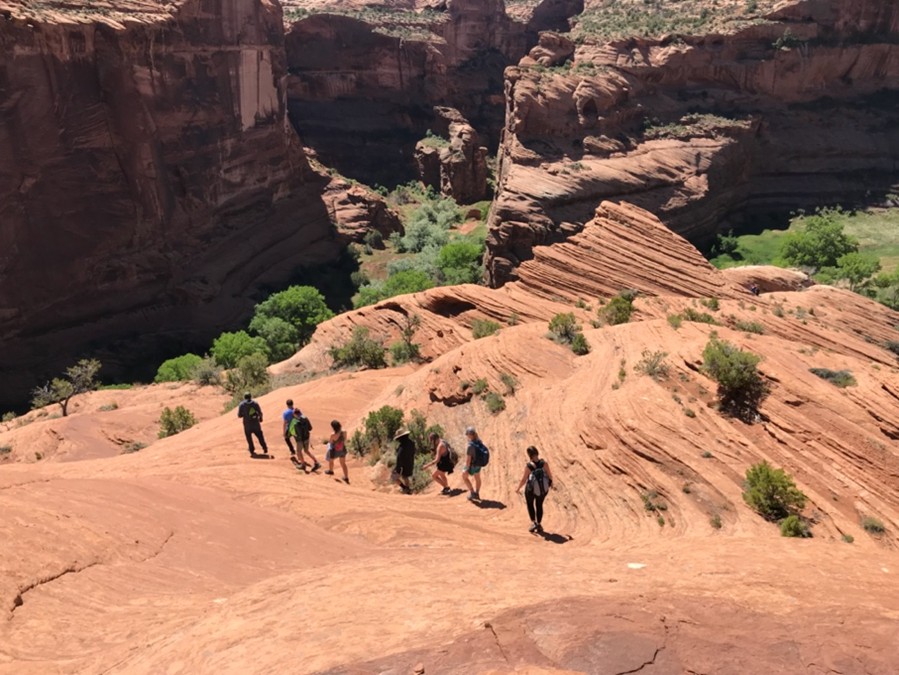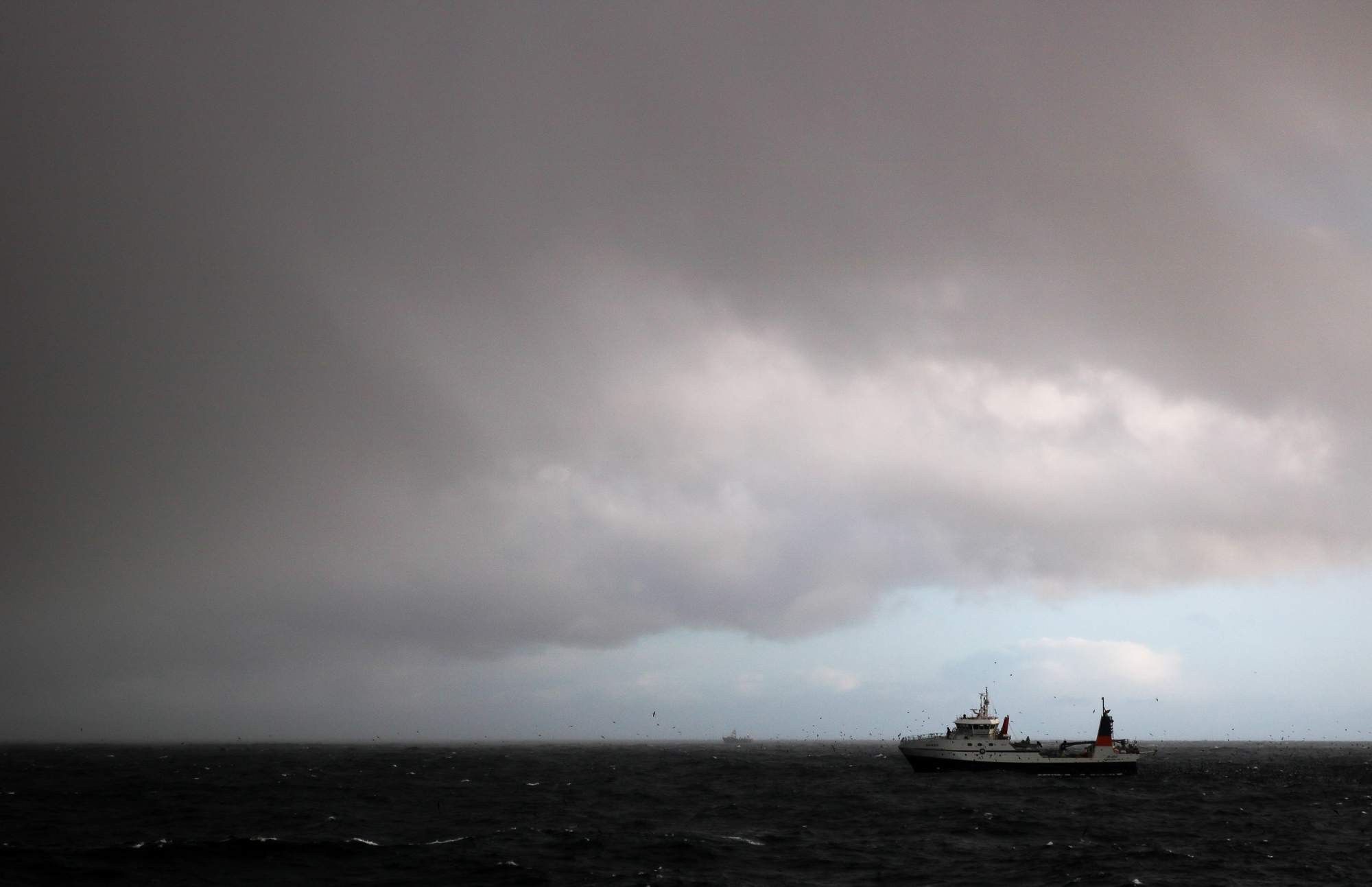Writers pour so much energy into their craft that sometimes we forget that creative pursuits other than writing can fill us up in other important ways. Here, we’ll look at what writers do when they aren’t writing, and how those pursuits affect the return to the page. This month, we hear from two writers— Lynn Sikkink and Katherine Cart—on how new experiences inform their writing.

My fiction is filled with images from Utah canyon country and Bolivian altiplano, of doing fieldwork in the Southwest and the Andes, of rivers and mountains and birds, but also of the people and cultures I’ve worked with as an anthropologist. It’s no surprise the bucket draws these images from my well, but I’m sad it took me many years to write about them as a creative writer. It was my students, through a mysterious and indirect process, who pushed me toward it.
Since I was old enough to say the word, I wanted to be an anthropologist. What I didn’t know when I began my career is that studying culture was filling me up with material that appeared in my journals and dreams and letters, but not as fiction.
I was always an avid reader and particularly loved fiction. I regret my younger self’s wrong-headed belief that I couldn’t be a fiction writer because I didn’t have a story to tell. Even while holding onto that belief, I told stories all the time. I relayed them to friends and family and students. I entered them into my field logs and even composed poems and story snippets, and of course I produced academic pieces that told their own kinds of stories.
What kept me from diving into creative genres was the thought I needed a full-blown idea for an action-packed thriller, a trauma-riddled memoir, or a trendy nonfiction topic to create a valid written piece. I didn’t realize then that a book could start with a wisp of an idea, like the image of a young woman visiting the hometown her mother had never shown her. I didn’t know that my own questions about the protagonist, the mother’s death from cancer, and stories from the long line of women that preceded the mother would lead me quietly to a concrete and complex narrative if only I allowed myself to steadfastly piece it together, to discover at each writing moment what happened next.
 It was the process of taking my college students into the field that cracked open the written words in creative form. After returning from taking students to visit archeological sites, talk with elders, sample food from different cultures, view rock art sites, and literally walk the same paths as people who came before us, the experience of sharing it with my students opened a channel for my storytelling, as if by “showing not telling” them, I’d laid down a foundation to become a different kind of writer. Our joint contemplation led me to a place not of explanation but of wonder. My first novel, the story of the daughter visiting her mother’s hometown, began to emerge right after spending ten days doing ethnography with my students in that little town that became the setting for my story.
It was the process of taking my college students into the field that cracked open the written words in creative form. After returning from taking students to visit archeological sites, talk with elders, sample food from different cultures, view rock art sites, and literally walk the same paths as people who came before us, the experience of sharing it with my students opened a channel for my storytelling, as if by “showing not telling” them, I’d laid down a foundation to become a different kind of writer. Our joint contemplation led me to a place not of explanation but of wonder. My first novel, the story of the daughter visiting her mother’s hometown, began to emerge right after spending ten days doing ethnography with my students in that little town that became the setting for my story.
Now my not-writing includes keeping a “field log” of jot notes, photographs, and objects. Along with the natural world, places like coffee shops, conferences, and classrooms have been added to my field. I’m thankful for the anthropological framework but also the new realizations that allowed me to take a different course in my writing. My daily experience of doing fieldwork wherever I am helps me replenish the well and brings me back to the writing.
Lynn Sikkink
I write everyday, except for a few weeks a year in which it seems like my brain is broken and writing would only break it further. So mostly the sense of not writing comes when I am between projects and I am writing because I’d lose it if I didn’t but I’m writing stuff I know is bogus. In these moments, a decent chunk of my creativity is spent imagining the horror that would be never being able to write something worthwhile again.
Sometimes, however, I get a new, healthier obsession, like painting or sewing or photography. This always ultimately feels a little like polyamory with not enough time to give adequate emotional attention to any given partner. So what happens is that I own a lot of pricey things I feel I should use but after the first flair of attraction, generally don’t. That’s the joy of writing: It is free, you don’t need anything, you can lay down on the ground and do it in your head.
I’m always thinking about food, about making food. So is my writing, really. Asking: What mudflat does this clam come from? Who harvested this potato and how might we cook it?
Reading, of course—whether it’s the news, or something more literary or some old manuscript from the archives—can be a creative thing. You’re given a static object, a text, and there’s a passive way of consuming it but then there’s also an active way, taking it apart like it’s the most intricate of living machines, wondering about it. Content or form.
I don’t know. Everything can feel creatively alive. When it doesn’t—yikes, that’s when I get worried and take a pulse check. Am I still conscious? Sometimes not. Lately, in exhaustion and worry, not. But sure—every choice made during the day has a little imagining that goes along with it.
 I write a lot and can be fairly hermetic, but I also resist the sense of putting myself in a little typing cave for too long. For instance, right now, I’m finding it difficult to write for any sustained amount of time, so I’m harassing my friends here in Newfoundland to see who wants to gorge on mussels and eggplant and make something with these strawberries that are about to go weird.
I write a lot and can be fairly hermetic, but I also resist the sense of putting myself in a little typing cave for too long. For instance, right now, I’m finding it difficult to write for any sustained amount of time, so I’m harassing my friends here in Newfoundland to see who wants to gorge on mussels and eggplant and make something with these strawberries that are about to go weird.
Everything experienced gets digested out in writing. Even the most fictionalized of fictions ends up being a diary. Aha, I can say, that story is when I was dating so-in-so and it was going downhill. Here’s where I was obsessed with fondant potato, or foraging, or deep time and glaciers (always).
I’ve been in Canada this year to do research for a novel on codfish, money, and belief. The first chunk of last fall was spent in the archives. A lot of that reading shaped this project. As did some trips out on the North Atlantic to catch cod on a hand line. This sort of stuff feels like experimentation too, trying to settle into the research, physical or textual, follow it through itself, in the same way that you’d settle into the writing page.
I’ve been lucky the last few years in that I haven’t had to do much besides write or think about writing. That’ll change this fall, as I move back home to Maine for a position in the realm of marine policy/ecology. I’m looking forward to that experience in its own right—the Gulf of Maine is quietly, rapidly changing in a disturbing way and I’m eager to see what I might be able to offer—and also for the as yet unknown concepts it will bring to the page.
Katherine Cart
Lynn Sikkink is a college professor (Western Colorado University), cultural anthropologist, and observer of all things human. After publishing many academic articles and a book, New Cures, Old Medicines, about the women who sell traditional remedies in Bolivian marketplaces, she began to pursue her love of creative writing full tilt. The result has been three novels (not yet published!) and a handful of short stories and essays. She also hikes, attempts to garden at high altitude, and watches the clouds for promising sunsets.
Katherine Cart is a current Fulbright Canada Grantee, a 2025-26 Folger Fellow and a 2025-27 Island Institute Fellow. She holds an MFA from the University of Virginia. She previously worked a variety of fishy jobs—Maine lobster boat deckhand, groundfish observer in the Bering Sea, salmon hatchery technician—and is always eager to talk about the economies and ecologies of oceanic spaces. Her writing is published or forthcoming in such places as Conjunctions, The Missouri Review and Raritan.
